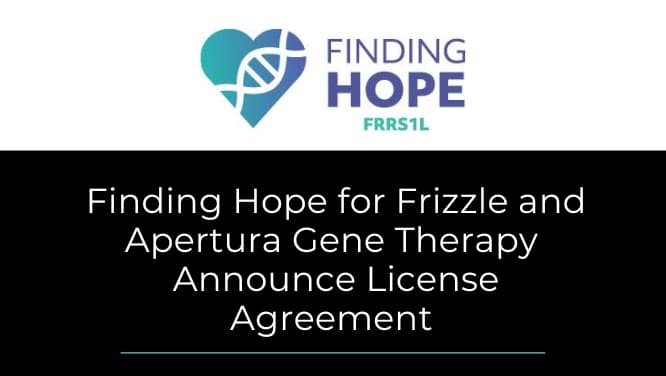Guide to Navigating the Corporate Transparency Act Federal Reporting Requirements

- Charles Ciaccio
- |
- January 11, 2024
Fraud Alert: FinCEN has flagged that it has been notified of recent fraudulent attempts to solicit information from individuals and entities who may be subject to reporting requirements under the Corporate Transparency Act. The fraudulent correspondence may be titled “Important Compliance Notice” and asks the recipient to click on a URL or to scan a QR code. FinCEN has noted that it does not send unsolicited requests and requests that companies do not respond to these fraudulent messages or click on any links or scan any QR codes within them.
Updated February 19, 2025: On February 17, 2025, the nationwide injunction halting the enforcement of the Corporate Transparency Act was lifted. The Financial Crimes Enforcement Network (FinCEN) has announced that most U.S. businesses now have until March 21, 2025, to make any BOI Report filings that otherwise would have been due before such date.
Updated December 26, 2024: As of December 26, 2024, the nationwide injunction halting the enforcement of the Corporate Transparency Act has been reinstated by the Fifth Circuit Court of Appeals. The Financial Crimes Enforcement Network (FinCEN) has announced that U.S. businesses are not currently required to file Beneficial Ownership Information (BOI) Reports until further notice, although they may do so voluntarily.
While companies may choose to hold off for now on their BOI Report filings, we recommend that businesses continue to evaluate the applicability of the CTA and, if not exempt, continue gathering the necessary information to file a report if the ruling is stayed or overturned. There is no guaranty of an extension to the deadlines if indeed this ruling is stayed or overturned.
For the latest updates, please visit https://fincen.gov/boi. To continue preparations, check out our step-by-step filing guide below. If you have any questions, please contact your primary KO attorney or reach out to us at [email protected].
Updated December 23, 2024: The nationwide temporary injunction that had been imposed by a Federal District Court has been removed by the Fifth Circuit Court of Appeals. In response, FinCEN has granted some small extensions to certain companies:
- Reporting companies that were created or registered prior to January 1, 2024 have until January 13, 2025 to file their initial beneficial ownership information reports with FinCEN. (These companies would otherwise have been required to report by January 1, 2025.)
- Reporting companies created or registered in the United States on or after September 4, 2024 that had a filing deadline between December 3, 2024 and December 23, 2024 have until January 13, 2025 to file their initial beneficial ownership information reports with FinCEN.
- Reporting companies created or registered in the United States on or after December 3, 2024 and on or before December 23, 2024 have an additional 21 days from their original filing deadline to file their initial beneficial ownership information reports with FinCEN.
Updated March 5, 2024: A U.S. District Court in Alabama recently ruled in favor of the National Small Business Association (NSBA) and one of its members and determined that the Corporate Transparency Act (CTA) is unconstitutional because it “exceeds the Constitution’s limits on the legislative branch” and fails the “necessary and proper” test. As a result, on March 4, 2024, the Financial Crimes Enforcement Network (FinCEN) announced that it will not enforce the CTA against the National Small Business Association and any of its members as of March 1, 2024.
At this time, other reporting companies with no exemption should continue to comply with the CTA. We will continue to monitor related litigation and legislation in other states.
Published January 11, 2024: In 2021, Congress passed the CTA, which is intended to detect, prevent, and punish money laundering, terrorism, and other misconduct and illicit activities through business entities. The CTA took effect on January 1, 2024, and now requires that most entities formed in or registered to do business in the U.S. file a report listing names and other personal information of the entity’s 25% owners and individuals with significant control, which the CTA calls collectively the “beneficial owners.”
Key Deadlines
Generally, initial reports will be required within 30 days of formation or registration of the entity. However, there is a reprieve in 2024: for entities formed or registered prior to Jan. 1, 2024, you have until Jan. 1, 2025. For entities formed or registered in 2024, you have 90 days.
If you are a “reporting company” (an entity with no exemption) then this law applies to you. The law requires that you file the following with the Department of Treasury’s Financial Crimes Enforcement Network (FinCEN):
- An initial report, within the applicable deadline described above.
- An updated report, within 30 days of any changed information.
- A corrected report, as soon as an error is discovered in a previously filed initial report or updated report.
There is no annual report requirement, so if the information on the initial report never changes, theoretically you don’t have to file an updated report ever. However, we expect that most reporting companies will occasionally need to file an updated report.
What does FinCEN do with all these reports?
FinCEN is creating a database that can be accessed by law enforcement under certain circumstances and by financial institutions for certain anti-money-laundering purposes. However, any entity that is not law enforcement will not be able to access it without the consent of the reporting company.
Why do we need to report?
Noncompliance can be costly. Civil penalties of up to $500 per day and criminal penalties of up to 2 years in prison and up to $10,000 can be issued for willful noncompliance. The reporting company is generally the one on the hook for noncompliance, but senior officers of the reporting company can be held personally liable as well. Noncompliance includes failure to file a report or updated report as well as willfully providing false information on a report.
Bottom line: While this may feel like an arduous, painful process, companies need to ensure that they comply.
Where do we start?
The most cost-effective way for a company to file the report is to handle the process of data collection and the bulk of the report preparation itself. Filing the report directly with FinCEN is free. However, there are many service providers that provide secure platforms to collect and retain the information and to some degree automatically populate the reports, generally for less than $100 per report, irrespective of the number of beneficial owners.
Entities that serve as registered agent tend to provide these services, including the following:[1]
FinCEN’s own materials are really helpful. Here are some links to the FinCEN website and BOI Guide. In addition, what follows is our step-by-step guide to completing and filing the BOI report.
STEP-BY-STEP GUIDE TO COMPLETING & FILING THE BOI REPORT
Step 1: Determine if you are a reporting company or if an exemption applies.
You are required to report to FinCEN if you are a corporation, a limited liability company (LLC), or were otherwise created in the U.S. by filing a document with a secretary of state or any similar office under the law of a state or Indian tribe, or a foreign company registered to do business in any U.S. or tribal jurisdiction.
Are you an entity formed in the U.S.? Or a foreign entity registered to do business in the U.S.? Then, yes, you are almost certainly[2] required to report unless you qualify for an exemption. If you are a U.S. business then generally the only time you won’t be a reporting company is if you are a sole proprietorship or a general partnership—meaning you never filed any paperwork to “form” your entity.
Remember that this analysis needs to be made for each entity so if an operating entity has multiple subsidiaries or parent companies, the analysis must be done for each of them.
The BOI Small Entity Compliance Guide has detailed checklists for exemptions for reporting companies—23 of them. The exemptions generally fall into the categories of highly regulated entities like financial institutions and publicly traded companies, tax-exempt nonprofits, certain large operating companies, and certain inactive entities. Don’t just guess whether you’re eligible for an exemption based on the title alone; work with the checklist available in the BOI Guide. Chart 2 includes technical definitions for each exemption.
This is a good time to work with your attorneys—let them know which exemption may apply and have them verify your analysis before deciding not to file because of an exemption.
Step 2: Determine beneficial owners.
The technical definition of a “beneficial owner” is any individual who, directly or indirectly, exercises substantial control over a reporting company or owns or controls at least 25 percent of the ownership interests of a reporting company. According to FinCEN, an individual exercises substantial control over a reporting company if the individual meets any of four general criteria: (1) the individual is a senior officer; (2) the individual has authority to appoint or remove certain officers or a majority of directors of the reporting company; (3) the individual is an important decision-maker; or (4) the individual has any other form of substantial control over the reporting company.
What does this mean in practice? Beneficial owners will likely include:
- Anyone with a “Chief ____ Officer”/C-level job title
- President, Treasurer, or Secretary of the entity
- Manager of an LLC; General Partner of a limited partnership. If, e.g., the manager of an LLC is itself an entity, then you may have to determine if there is a particular individual at the management LLC that has the requisite substantial control
- Certain members of the board of directors. If the board has 3 members or fewer, we recommend reporting all individuals. For larger boards, determine whether any particular director has substantial control using the checklist.
- Anyone with 25% ownership. Since the formal calculation (which you can find in the BOI Guide) is fairly technical, we recommend running the formal calculation with anyone over 15% to determine if they hit 25% using the formal calculation.
- Anyone with a special right like a functional veto over fundamental changes.
Reference the BOI Guide for more information on determining substantial control, ownership interest, beneficial owners, and exemptions.
Required beneficial owner information includes full legal name, date of birth, complete residential address, unique identifying number, issuing jurisdiction, and image from a non-expired U.S. passport, state driver’s license, identification document issued by a state, tribe, or local government, or (only if none of those exist) a foreign passport.
Step 3: Determine company applicants.
For reporting companies created on or after January 1, 2024, one or two company applicants must be identified and reported. A company applicant is an individual who is “the direct filer” or an individual who “directs or controls the filing action.”
Like beneficial owners, the information required for company applicants is full legal name, date of birth, complete address, unique identifying number issuing jurisdiction, and image from a non-expired U.S. passport, state driver’s license, identification document issued by a state, tribe, or local government, or (only if none of those exist) foreign passport.
Companies created prior to January 1, 2024, do not have to report Company Applicants. Note that unlike all other information on the BOI Report, the company applicant information does not need to be updated even if it later changes.
Step 4: Determine how you will file.
Your choices here are (1) file yourself or (2) use a service company to file.
If you are filing yourself, you will choose whether to use the fillable PDF, which you will then submit online, or whether you will use FinCEN’s web-based form. We highly recommend using the fillable PDF, because as of the time of this writing, the web-based form does not let you save progress and come back to finish later.
Both methods are located at https://boiefiling.fincen.gov.
If you choose to use a service company to file, we recommend accessing the service company’s filing platform and following the indicated information. Using service companies to file may be beneficial when you have a large number of beneficial owners because they provide a secure platform to collect and store the personal information of each beneficial owner.
Step 5: Gather information and file.
Gather the company, beneficial owner, and company applicant information required for the filing, either on your own or via a service provider secure platform.
Once you have all of the information, proceed with entering the information into the fillable PDF or FinCEN’s web-based filing system, or proceed with generating the form via the service provider’s platform. Cross-check all information to confirm its accuracy. Be sure to save a copy of this information and the completed report in a secure location.
Step 6: Develop a process for identifying changes and new exemptions.
If there is any change to the required information about the company or its beneficial owners, an updated BOI report must be filed within 30 days of the date of the change. For example, if there is a change in beneficial ownership, a new DBA, or a minor child who is a beneficial owner reaches the age of majority, an updated BOI report must be filed as soon as you discover the error.
Ensure your team understands the reporting requirements and that you have an internal process in place to regularly confirm any updates to company and beneficial owner information and criteria for reporting companies and exemptions. If your company is currently exempt but later loses that exemption (or no longer qualifies for that exemption), an initial report must be filed within 30 days of that exemption no longer applying. Inform your team that it is their responsibility to report any relevant updates or changes to company, beneficial owner, and company applicant information to a designated team member who will handle this process.
For beneficial owners who are investors and not a part of management of the company, make sure that they are aware of the requirement to report changes to you. Whenever submitting an updated report because of a change in one piece of information, make sure that you reach out to all beneficial owners to ensure that their existing information remains correct.
Please note there are no requirements to report changes to company applicant information or to report a company’s termination or dissolution. If the company becomes exempt, an updated BOI report should be filed indicating the newly exempt status .
Use the FinCEN ID to simplify the process.
A “FinCEN identifier” or “FinCEN ID” is a unique identifying number that FinCEN will issue to an individual or reporting company upon request and after they provide certain information to FinCEN. The process to obtain one is very easy, and the FinCEN ID is issued immediately.
You should consider requiring your officers and strongly suggesting your other beneficial owners have a FinCEN ID.
For a beneficial owner that has a FinCEN ID, the company does not need to collect or report any personal information about that beneficial owner. The company only needs to list the FinCEN ID of that beneficial owner. The primary benefit to the company is that changes in the beneficial owner’s information won’t trigger the requirement to file an updated report, since the FinCEN ID will never change. Instead, the burden on updating FinCEN for any beneficial owner with a FinCEN ID shifts from the company to the beneficial owner, who is required to update FinCEN via the FinCEN ID website if the beneficial owner’s own identifying information changes.
FinCEN identifiers may be requested at https://fincenid.fincen.gov. More information about FinCEN identifiers is available at https://www.fincen.gov/boi-faqs#M_3.
Keep these helpful hints and traps top of mind!
- Beneficial owners are more than just “owners”
- Watch out for contractual arrangements when identifying beneficial owners
- Lots of things can require an updated report filed within 30 days
- Be careful with the privacy implications of all that personal identifiable information (PII) you are collecting and be sure to adhere to privacy and security best practices
- Senior officers of reporting companies can be held liable
- Beneficial owners are required to provide residential addresses while service provider company applicants may provide business addresses
- All entities will now need an employer identification number (EIN)
- Startups should pay particular attention to the details on determining substantial control and ownership interest to address VCs and strategic investors on the cap table
While this process is time-sensitive and will likely be time-consuming, it’s important for all companies to be aware of the reporting requirements and deadlines to ensure compliance. If you have questions on the requirements, exemptions, or need support on your filing, please contact your primary KO attorney or reach out to us at [email protected].
[1] Note that KO does not guaranty the effectiveness of these services, so please conduct your own diligence on these providers and use at your own risk.
[2] Technically, entities created by registering with the federal government rather than a state, such as banks registered as National Associations, are not “reporting companies.”




